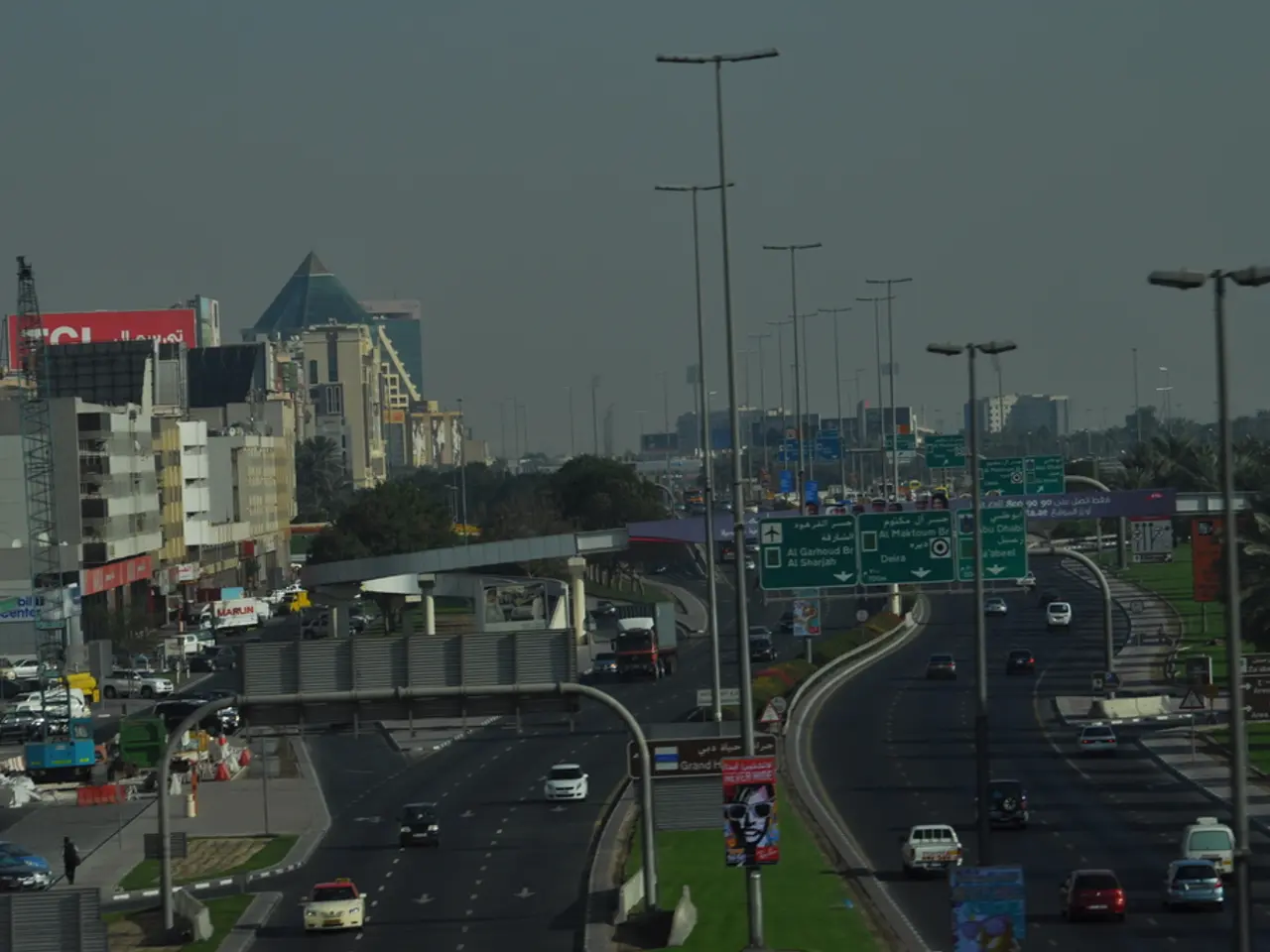Trump's unparalleled display of authority in Los Angeles and Washington breaches conventional norms, causing apprehension
Federal agents are patrolling the streets of Los Angeles and Washington D.C. every day, with over 40 teams on the ground, according to McLaughlin. This deployment, initiated by President Trump, marks a significant departure from historical precedents and raises complex legal issues.
In the past, the use of military forces on U.S. soil for law enforcement or protest suppression has been very rare and reserved for extreme emergencies. Traditionally, National Guard deployments for domestic incidents occur under state control, with federal intervention limited or carefully legislated. However, Trump's deployment of California's National Guard and Marines in June, followed by his subsequent takeover attempt of Washington D.C.'s police force, represents an unusual concentration of federal military and law enforcement authority domestically within a short period.
The legality of these actions is under scrutiny. The 10th Amendment, which reserves powers to states, has been cited in a federal court case where California sued the Trump administration for an "unwarranted deployment" of the National Guard, arguing that it violated state sovereignty. The Posse Comitatus Act (1878), which prohibits using the federal military as a domestic police force unless explicitly authorized by law, is also being questioned. Experts and legal scholars see Trump’s deployments as potentially violating this Act, especially given that the National Guard, when federalized, is considered part of the military subject to Posse Comitatus restrictions.
The federalization of D.C.'s Metropolitan Police under Trump relies on the unique legal status of Washington, D.C., not applicable to other cities, further complicating the legitimacy and precedent for such federal involvement. Trump's justification for these deployments—that local law enforcement is overwhelmed or unable to control protests, crime, or immigration enforcement—has been contradicted by data showing crime in Washington was at a 30-year low before troop deployments and that protests in Los Angeles had largely subsided prior to troop arrival.
These deployments have sparked federal lawsuits and legal debates regarding the balance of power between federal and state governments, the scope of presidential authority to mobilize troops domestically, and the constitutional limits on military involvement in civilian policing. The District of Columbia has filed an emergency motion seeking to block the Trump administration's takeover of the city's police department.
In Los Angeles, thousands of Marines and National Guard troops were deployed by Trump in June, but they saw little action, and local leaders said the deployment was unnecessary and only served to inflame tensions. Hundreds of National Guard troops are still patrolling the streets of Washington D.C., some in armored vehicles. On Thursday night, twenty federal law enforcement teams fanned out across Washington D.C., making 33 arrests, including 15 people without permanent legal status and others for murder, rape, and driving under the influence.
The deployments have not gone uncontested. D.C. residents and public officials have pushed back on federal law enforcement's presence, with hecklers shouting at federal officers during a vehicle checkpoint. Thomas Abt, the founding director of the Center for the Study and Practice of Violence Reduction, emphasized that pulling federal agents from their jobs can hurt overall public safety. Thaddeus Johnson, a senior fellow with the Council on Criminal Justice, stated that the administration's actions breed confusion and fear among citizens due to the lack of distinction between federal and local officers.
The future of these deployments and their legality remains uncertain, with ongoing legal battles that may set new precedents for future federal troop deployments on U.S. soil. The Central Park Five, who were wrongfully convicted of a rape in New York City in the 1980s, have filed a defamation suit against President Trump. Meanwhile, California arrests by ICE have declined in July after a judge issued a temporary restraining order, but some higher profile raids have begun to ramp up again in the past two weeks.
[1] https://www.nytimes.com/2020/06/30/us/politics/trump-protests-troops.html [2] https://www.cnn.com/2020/06/26/politics/california-sues-trump-national-guard/index.html [3] https://www.washingtonpost.com/politics/2020/06/26/trump-says-he-will-take-over-d-c-police-force-what-that-means/ [4] https://www.npr.org/2020/06/26/883996189/trump-deploys-troops-to-los-angeles-and-other-cities-raising-legal-questions [5] https://www.washingtonpost.com/politics/2020/06/26/trump-deploys-troops-los-angeles-and-other-cities-raising-legal-questions/
- The unusual concentration of federal military and law enforcement authority in Los Angeles and Washington D.C. has raised complex legal issues, with the 10th Amendment and the Posse Comitatus Act being scrutinized.
- The federal court case between California and the Trump administration centers around the argument that the unwarranted deployment of the National Guard violates state sovereignty and the Posse Comitatus Act.
- The deployment of Marines and National Guard troops in Los Angeles was criticized as unnecessary and only serving to inflame tensions, while federal law enforcement teams in Washington D.C. made arrests for crimes including murder, rape, and driving under the influence.
- D.C. residents and public officials have expressed opposition to the federal law enforcement presence, with concerns about public safety, confusion, and fear among citizens due to the lack of distinction between federal and local officers.
- Trump's justification for troop deployments, that local law enforcement is overwhelmed, has been contradicted by data showing crime in Washington was at a 30-year low before troop deployments.
- California arrests by ICE declined in July after a judge issued a temporary restraining order, but some higher profile raids have begun to ramp up again in the past two weeks, raising questions about the constitutional limits on military involvement in civilian policing.
- The legality of these deployments and their future remain uncertain, with ongoing legal battles potentially setting new precedents for federal troop deployments on U.S. soil, and the Central Park Five filing a defamation suit against President Trump.








